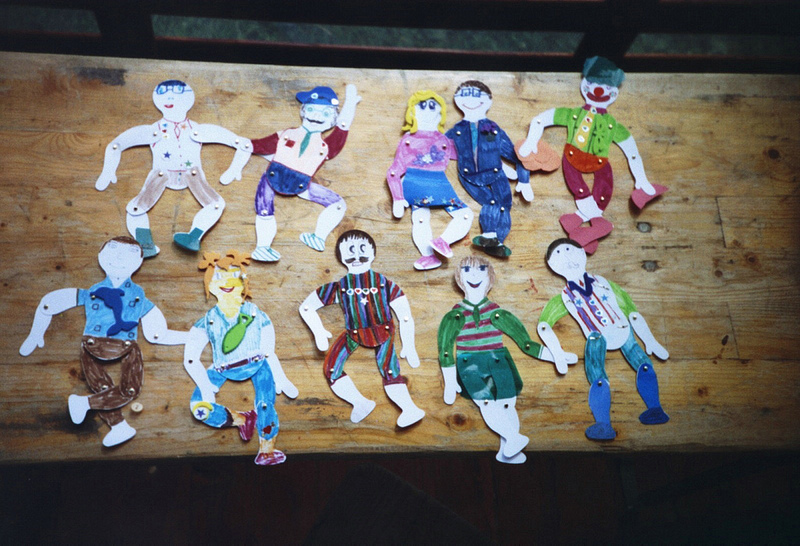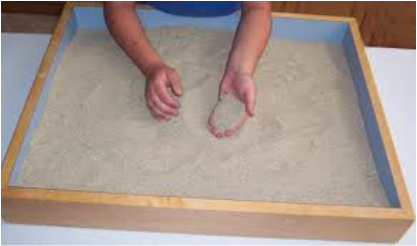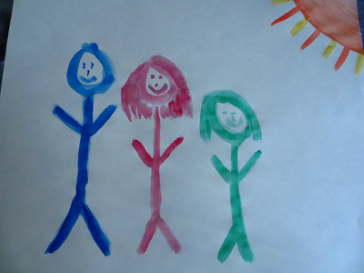
Is your child having trouble listening to you? Are they acting out behaviorally at home or in school? Are you having trouble connecting with your child? Are you feeling stuck in your parenting techniques and not sure what to do next?
As a parent, asking for help with your child can be one of the most difficult steps to take. As hard as it can be to admit, we all need a helping hand from time to time. Parenting is HARD! Children do not express themselves as adults do. You may notice your child is acting out, has increased tantrums, regressive behaviors, their grades are dropping or they are isolating themselves. This is their way of saying “I need help. I need connection. I need help with my big feelings.”
It is my honor to help guide you and your child through these challenges and assist in strengthening your relationship between you and your child. Call today to schedule an appointment or to learn more! (407) 800-3881
Some reasons a child may enter therapy may include:
As a parent, asking for help with your child can be one of the most difficult steps to take. As hard as it can be to admit, we all need a helping hand from time to time. Parenting is HARD! Children do not express themselves as adults do. You may notice your child is acting out, has increased tantrums, regressive behaviors, their grades are dropping or they are isolating themselves. This is their way of saying “I need help. I need connection. I need help with my big feelings.”
It is my honor to help guide you and your child through these challenges and assist in strengthening your relationship between you and your child. Call today to schedule an appointment or to learn more! (407) 800-3881
Some reasons a child may enter therapy may include:
- Aggression and acting out behaviors
- Social difficulties
- Bullying/Being bullied
- ADHD
- Depression and/or Anxiety
- Truancy/School concerns
- Attachment concerns
- Trauma
- Abuse/Neglect
- Suicidal/Cutting/Self-harming behaviors
- Difficulty connecting with parents
- Low self-esteem/Body image concerns
- Eating or sleep difficulties
- Divorce/Separation
- Grief/Loss
Child Therapy
|
Play Therapy: Play therapy is the therapeutic use of play to facilitate feeling expression and assist the child is communicating. Children do not express themselves how adults can. Play is a child’s natural language and the toys become their words. Through play therapy, the child is given a safe space to be completely themselves and to express their thoughts in many ways. Through this space and the therapeutic relationship, the child can learn coping skills, learn to regulate their emotions, to work through their experiences, to communicate their feelings, build mastery, develop problem solving skills and build self-esteem. Play therapy will also facilitate a child’s self-exploration, foster growth, self healing, and allow the child to own responsibility for their choices and actions.
Sand Tray Therapy: Sand Tray is a type of therapeutic intervention utilizing sand and what are known as miniatures, to generate expression and communication. The miniatures are carefully selected that can be used to symbolize various emotions or experiences. The child will work through their experiences by building "their world" and scenes in the sand tray. This provides the child with a non-threatening environment that allows them to release their emotions and process conscious or unconscious experiences at a safe distance. |
Expressive Therapies: Other interventions to facilitate expression may be used through art, clay, jewelry making, music, media or other interactive exercises. Similar to play therapy, this helps a child to "open-up" as it is less threatening to them and provides a safe psychological distance. It is often easier for children to express feelings by projecting them onto artwork, puppets, or music lyrics rather than verbalizing it themselves.
Talk Therapy: Some children are more verbal than others and can easily express themselves without the need for play or expressive therapies. Talking through their experiences can help to process feelings, resolve inner conflicts, gain insight into their thinking and behavior and help to identify solutions. |
It is imperative that you as the parent/caregiver are an active participant in the therapy process with your child as well. Through this process, it can help you to gain insight into your child's world and feelings, strengthen your relationship, repair attachment wounds, and strengthen your communication.
A note about minor therapy sessions
Jennifer Whitfield, with Hope Health & Healing Counseling Center, LLC does not participate in individual court cases, child custody cases, court appearances, testimony and cannot provide any recommendations for custody or timesharing for parents. Jennifer Whitfield is not a court appointed psychologist, child custody evaluator with relevant training to discern optimal custody arrangements, nor is Jennifer Whitfield a parenting coordinator with the ability to help plan or execute parenting plans. As such, Jennifer Whitfield will provide you with appropriate referrals and resources as necessary.
For minor therapy sessions, in the case that parents are separated, both parents must consent to treatment for the child. Jennifer Whitfield will request a copy of the parenting plan to review. Oftentimes with shared decision making, both parents need to confer with the other to inform them of their child’s participation, or mutually agree on a provider.



